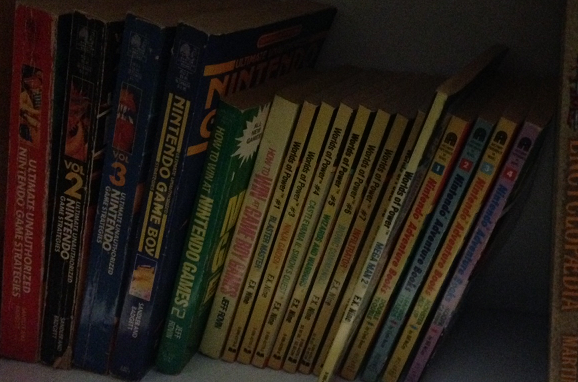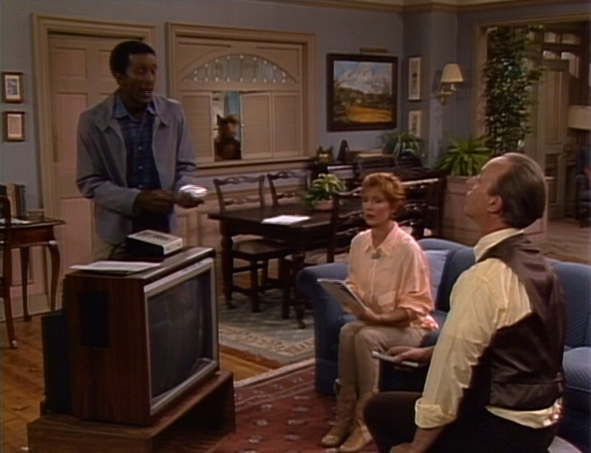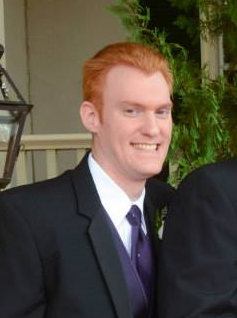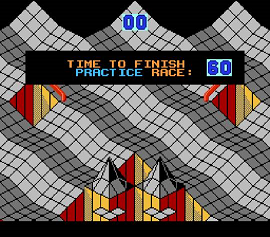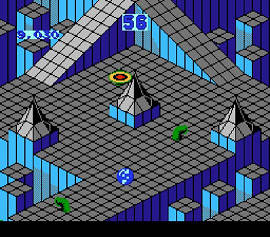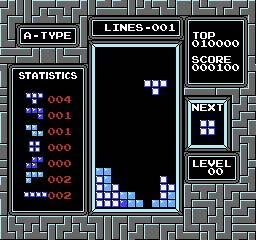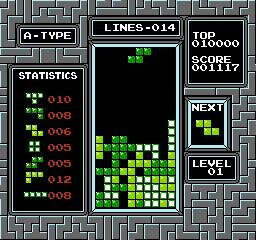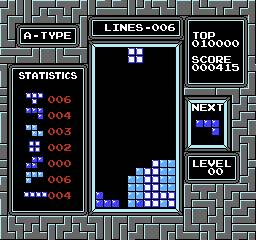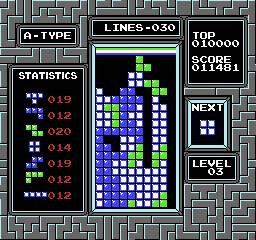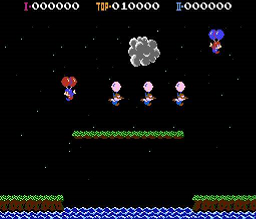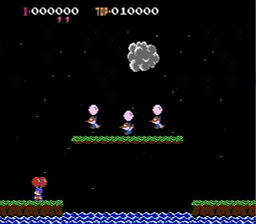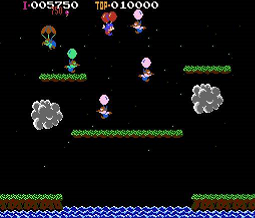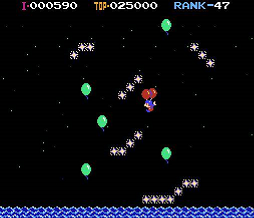Two episodes ago, we opened with one hell of an unexpected development: Mrs. Ochmonek saw ALF. But “Prime Time” manages to open with something even more shocking: a black guy on ALF.
A friend and I were discussing this recently. There was Regular Gonzales in “Border Song,” and Officer Designingwomen in “Pennsylvania 6-5000,” and that about covers it for minorities on this show. Am I forgetting anyone? Maybe. Am I forgetting lots and lots of minorities? Absolutely not.
I don’t know. It’s a little bizarre to me that we’re encountering only the second black person this show’s ever had as we creep toward the middle of season two. There’s something off-putting about that, and it makes me wish they set the show in some racially diverse city, instead of the famously whitebread L.A.
Anyway, this guy is here to explain to us — oh, and the Tanners — what the plot of this week’s episode will be: the Tanners are getting set up as a Thompson family.
While the “Nielsen boxes” are still in use, I don’t hear as much about them as I used to. Years ago, though, I seem to recall just about every sitcom making a joke about Neilsen families, or building a plot around the idea as ALF does here.
If you’re not familiar, Nielsen ratings were metrics — though scattershot and far from exhaustive — by which networks and advertisers could measure the amount of viewers any given program pulled in. The “boxes” were probably the best known, even if they weren’t the most common, method of gathering this data.
I never had one so I can’t speak to the specifics (can any of you?), but it would connect in some way to your television, and would transmit information regarding your viewing habits to the Neilsen Company. What channel was being watched at what time, for instance, which could then be used to retroactively determine which specific shows they were.
The more common method — and one I did actually experience second-hand thanks to the fact that a friend’s household was selected to participate — was a simple journal. This was essentially the Nielsen version of the honor system. You’d write down what you watched, and how long you stayed tuned in. Then they’d collect the journals and crunch their numbers.
For reasons you can easily enough imagine, both of these methods were — and continue to be — seriously flawed, which is probably what made them such frequent targets for frightened showrunners. After all, this wasn’t simply unreliable, poorly-sampled data…it was the difference between getting another season and being axed outright.
To viewers at home, this data meant almost nothing. To everyone working in any capacity whatsoever on a television show, however, it directly determined whether or not you’d have a job in a week’s time.
But this is getting too heavy for an ALF review, so why don’t you scroll up and admire Willie, who seems to be re-enacting one of those shampoo commercials where the woman’s hair fans out behind her.
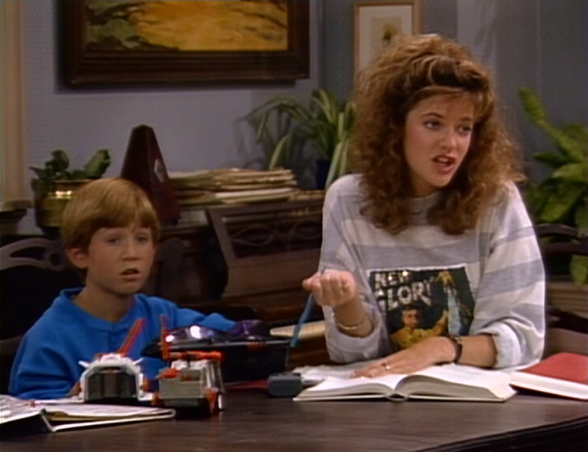
A. Blackman leaves, having rigged up a Thompson box for the family, and ALF opens the episode proper by saying, “Explain how television ratings work, Willie.” Very subtle, ALF. Just…just brilliant.
Perhaps I too quickly embraced the arrival of Al Jean and Mike Reiss…but can you blame me? “Working My Way Back to You” was actually good. It seemed to herald a new phase for ALF, where maybe, just maybe, competence would inch its way closer to being a weekly occurrence. Since then, though, we’ve gotten only lousy episodes, and “ALF fucks around with a Neilsen box” isn’t exactly the most promising setup. It’s also yet another story that could be told without having an alien involved at all. Do the writers even like the concept of their own show?
Lynn in this scene is wearing what has to be the most uncomfortable shirt I’ve ever seen. I can imagine how she must be sweating under the studio lights. Long sleeves and one of those massive vinyl decals on the front? I’m sweltering just thinking about it. Brian, as ever, is staring off-stage, wondering how his life could have gone so, so wrong so, so quickly.
Each family member gets a login code, so that the Thompson Company will know who is watching what. ALF, in the closest thing this episode has to a point, feels left out when he doesn’t get a code. After all, he’s part of the family…right?
This is exactly the kind of emotional component a better show would use to its great advantage, building character through this very human detail that’s tacked on to what’s, essentially, a very silly plot. Something like what Futurama did by attaching Fry’s attempt to win Leela’s heart to a story about mutant basketball players, or what The Venture Bros. did by building a sad revelation about his father into Hank’s episode-length detective fantasy.
There’s nothing wrong with a show — especially a comedy — doing an episode that’s deliberately silly. But the best writers can pull off that episode while still retaining a continuity of the human component. In other words, the characters we love aren’t replaced by caricatures for a week; they’re the same characters, and it’s the situation that’s grown crazier.
Of course, this is ALF, and the whole, “Am I not really a member of this family?” angle is dead on arrival. It never gets mentioned again, making it seem like the last work of the One Good Writer before he leapt out the window to his death.
Kate decides to give ALF a code of his own, which sure is nice of her, but it raises the question of how she gives him a code. Weren’t these codes assigned by the Thompson Company? That would seem like a very basic part of the setup process. And is there no concern about the potential discrepancy when there are four people watching TV in this house, while using five unique codes?
All of this could have been resolved by having ALF use Willie’s code, or something, which would be the least dickish thing he’s ever done to something of Willie’s, but instead they go out of their way to assign him his own. It doesn’t come into play in any way that another family member’s code couldn’t, so I like to see this as a big “fuck you” to anyone dumb enough at home to be paying attention.
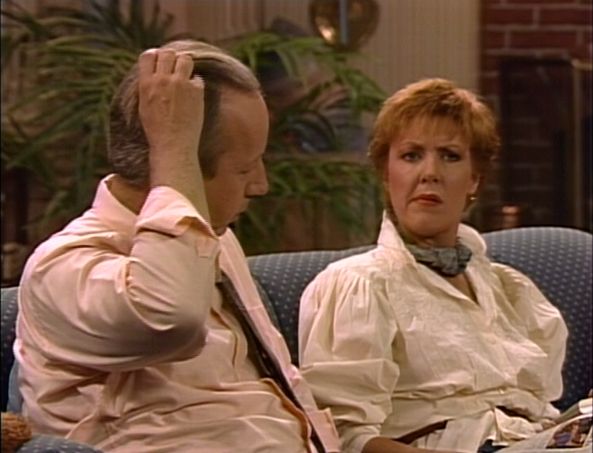
There is a single well-observed moment in the episode, and it’s this: ALF comes into the living room to find Willie and Kate watching The MacNeil / Lehrer Report, which is said to be followed by the only fake show in the ALF universe that’s gotten a smile out of me: Weather Maps of Developing Nations.
ALF correctly calls them on their BS. They don’t really watch this stuff; they just want to seem like they watch this stuff. That’s what people do when they suddenly find themselves being observed while doing something they normally do in private…they try to make it look impressive.
And I like that. It doesn’t shed any light on Willie’s relentlessly vague characterization, but it also doesn’t run afoul of anything we know about Kate. This isn’t a bad thing for them to do…it’s just something that people do. And it’s being pointed out by an alien. Which, y’know, could probably stand to happen more in A SHOW ABOUT A FUCKING ALIEN. He should be pointing out these passive human hypocrisies ALL THE COCKSTINKING TIME.
I don’t know. Maybe it’s my fault. Maybe if I stop thinking of ALF as an alien and start thinking of him as a smaller, hairier Paul Fusco this show would make a lot more sense.
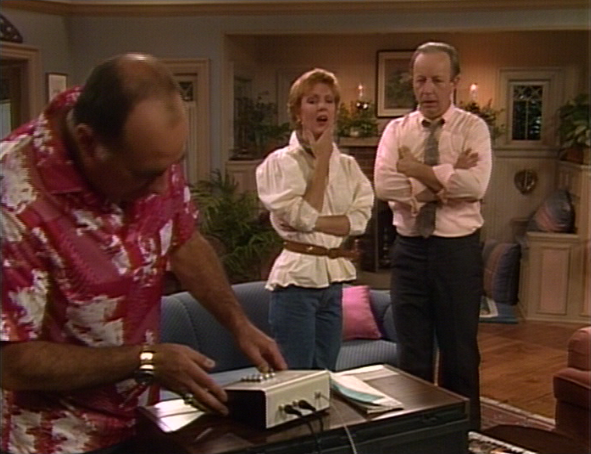
Mr. Ochmonek comes over, and there’s this really strange moment when Kate tells ALF to get in the kitchen, and ALF riffs for a while about what an anti-feminist statement that is. It’s the kind of thing that might have landed as a joke in the hands of a better performer, but instead it just lies there, feeling vaguely offensive if not for its content then at least for its stupidity.
Anyway, Mr. Ochmonek sees the box and assumes the Tanners are stealing cable. They explain that they’re a Thompson family, which for some reason makes Mr. Ochmonek start talking about Polka Jamboree. On ALF that qualifies as a graceful segue.
Polka Jamboree, according to Mr. Ochmonek, is like “a Slavic Soul Train.” This is similar to ALF’s anti-feminist rant a moment ago in the sense that it sounds more offensive than it really is, but it works much better here, simply because John LaMotta delivers the line the way a normal human being would, rather than making it sound like a desperate bid for attention from a struggling stand-up comic.
I don’t think I’ve given LaMotta nearly enough credit. Granted, in some episodes (such as “Come Fly With Me” and “Take a Look at Me Now”) he comes across as a flawed but ultimately believable human being, and I was happy enough to praise him there. But the more I see how utterly awful ALF can be in all respects, the more I appreciate having LaMotta around even when he’s given nothing to work with. He’s the only one of the “regular” cast that doesn’t seem to be slugging his way through 24 minutes of abject misery, and considering the fact that he’s been just as damning toward the show in recent years as pretty much everyone else involved, that means he qualifies as a pretty good actor as well.
His material isn’t always so hot, as evidenced by the writers sticking him in “Prime Time” just to do a silly dance…
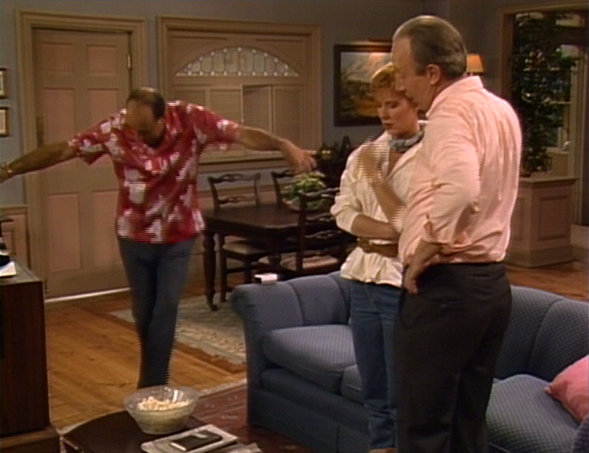
…but it’s reliably nice to see him. Anne Schedeen might have managed to find a real human being in her character, but Jack LaMotta knows how to have fun, and that’s surprisingly rare for a show about a cat-eating space puppet.
Anyway, the reason he stopped over is to let the Tanners know that he’s taking his wife to “The Big Apple.” Not New York, though…a farmer in Washington state grew a 60 pound red delicious, and they want to go see it. I guess the joke is that they’re idiots for wanting to take this trip, but when’s the last time Willie and Kate did anything? At all?
Sure, maybe going with your spouse to see a giant piece of fruit is a pretty uncommon activity, but who are the Tanners to judge? At least the Ochmoneks like each other enough to spend time together.
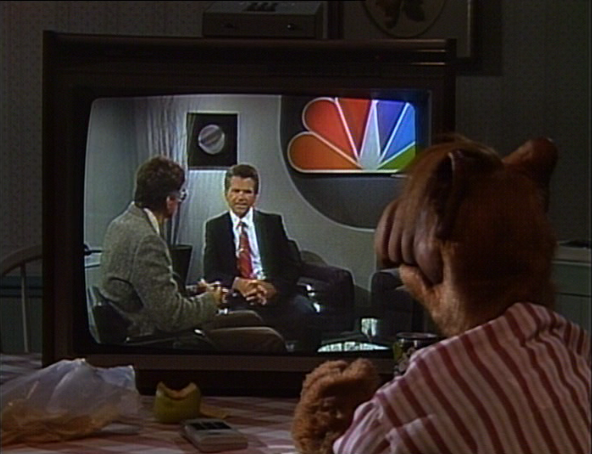
After Mr. Ochmonek leaves, ALF comes running out declaring that he’s in love with Polka Jamboree. That night we see ALF in the kitchen watching TV, and I thought the joke would be that he was watching his new favorite show 24 hours a day. …somehow.
Instead, though, it’s some news program. The interviewer is speaking with “Brandon Tartikoff,” who was the real-life president of NBC at the time. NBC, in case you didn’t know, was ALF‘s network.
Tartikoff is played here by David Leisure, and I couldn’t be happier that he got a mulligan* after “The Gambler” forced him to deliver all of his lines through a tissue.
They talk about the Thompson box, for plot reasons of course, but the way Leisure is talking about it, he makes it sound like it’s some proprietary system of NBC’s. What good would that do? Does it just measure the viewers of NBC programming? And what kind of news program interviews its own network president?
Oh well. Leisure at least does a great job of illustrating for us how a capable comic actor can sell subpar material. While his lines consist of circular nonsense (the inconsistencies are consistent with the expected inconsistencies, and shit like that), he sells it the same way Saul Goodman convinces women that he’s Kevin Costner: by believing it himself.
His speech here isn’t a laugh riot by any means, but it’s serviceable, and anyone who can elevate ALF material to that level deserves respect.
A perfect counterexample comes in the form of the interviewer,** who immediately after the speech says, “Wow, our time’s up already?” The fake audience loves it, and I’m glad they do, because no flesh and blood viewer would be impressed by the way that joke shrivels and dies. The interviewer relied on the material itself to be funny. Leisure, wisely, chose to make the material funny.
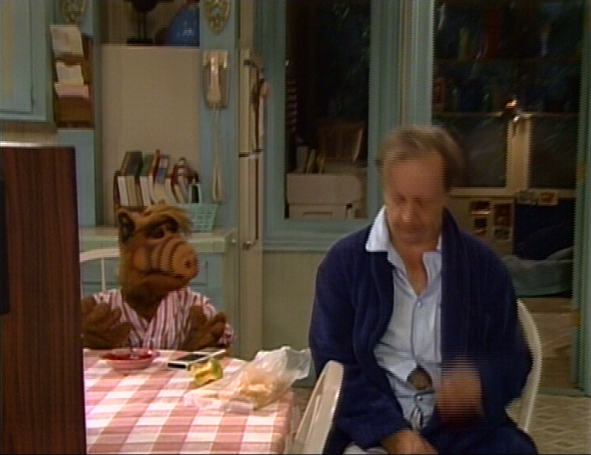
Willie comes in and tells ALF to fuck the fuck to bed. Then he sits down and we get a wholly unwelcome glimpse of his belly fur. I guess I should be glad he wasn’t wearing boxer shorts.
ALF asks Willie what happens if a show gets bad ratings, and Willie replies that it goes off the air, right after a cliffhanger in which the government comes and hauls the title character off screaming.
Realizing that he hasn’t fucked up anything this week yet, ALF begins to fret about Polka Jamboree getting cancelled, which is a fate that might be avoided if more viewers tuned in. Willie says, “That would take a miracle.” ALF replies, “Just call me The Miracle Worker.” So, hey, toss a Helen Keller joke into this mess. Why not.
Earlier ALF made some kind of comment to the effect of, “I can understand. I’m an alien, not a foreigner.” Why is this episode reaching so hard for such vague offensiveness?
Then we get…
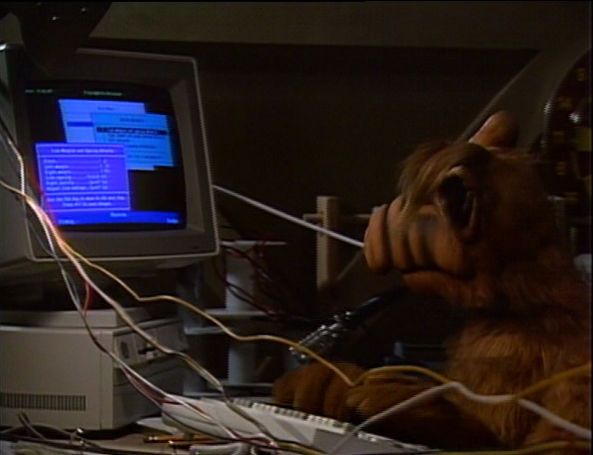
Oh, Lord. A montage.
A montage set to library polka music, with ALF hacking computers.
Since when — and why — is ALF a master hacker? I’m more or less willing to accept that he innately “knows” English, but it’s not remotely possible that he’d also know how Earth computers operate…let alone thoroughly enough that he’s able to override their intended purpose and feed false data to the Thompson Company.
My grandmother recently got her first email address. She called me to give me the good news. “You can email me now!” she said, and then she slowly read the address to me. When she was done, she added, “And the password is pinecone14.”
I told her she shouldn’t give that out. She replied, “Don’t you need that to send me email?”
My grandmother’s not an idiot. It’s just that technology advanced at one pace, and she advanced — as so many grandmothers do — at another.
My point here is that she’s co-existed with this technology for decades. It’s been there, in her periphery, all along. She’s heard people talk about it. She’s seen it on television. She’s read articles that reference it. But when it came time for her to sit down and use it, she found out that she didn’t understand something as basic as what to share, and what to keep private.
ALF has co-existed with this technology for maybe a year. None of the Tanners even use the computer they keep stashed away in the garage for some reason. I’m sorry, but I don’t buy that ALF can hack the Thompson Company, Mrs. Ochmonek’s TV, and the secret Presidential frequency of Air Force One on a whim. Especially if he can’t fuckin’ fix his own engine.
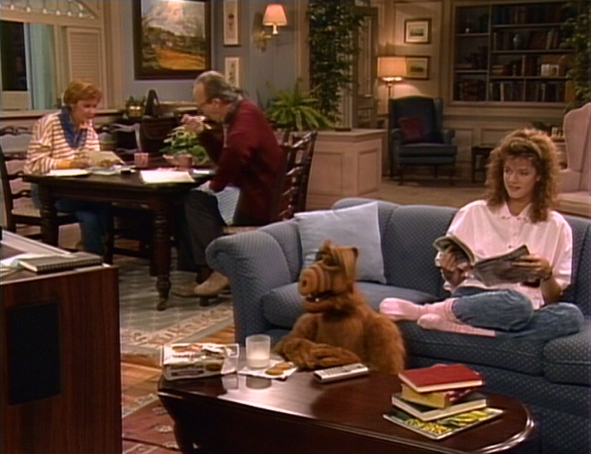
One week later (thank you, caption, for being the most intelligible thing in the episode) ALF is grooving to some Polka Jamboree. There’s some heavy-handed exposition from Willie about how they might as well let ALF enjoy the show while it’s on, because it’s bound to be cancelled soon, unless a space monster hacks the ratings data at night while everybody is asleep, and what are the odds of that?
We actually get to see a bit of Polka Jamboree, which I didn’t expect. But now that I’ve seen it, I wish I hadn’t.
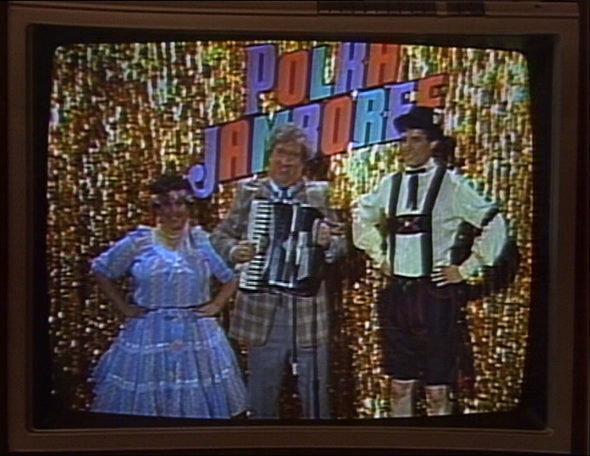
I definitely don’t believe any major network would have aired this…and certainly no network in direct competition with NBC. Remember, this was the late 80s. There weren’t hundreds of niche channels as we know today. In fact, I’m positive there is a show like Polka Jamboree out there now, but back then there was no way that prime time slots would be turned over to two dancers, an accordionist, and some tinsel.
Anyway, the accordionist announces that Polka Jamboree is number one in the ratings, which is totally something television shows do ALL THE TIME AND HOW DOES ALF NOT KNOW HOW TV WORKS
The Tanners get pissed off for some reason, and they confront ALF about this development. But why the fuck do they care what show is number one in the ratings? Did they bet money on Roseanne or something?
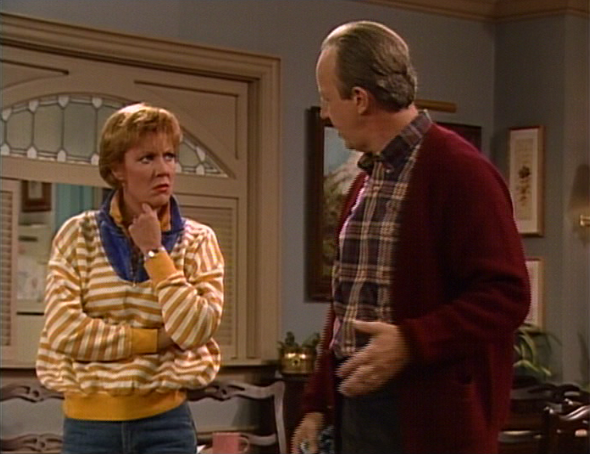
You can tell the episode is off the rails when even Kate starts dressing like the victim of a head injury.
ALF explains that he called 2,000 people and told them to watch the show…but nobody should worry, because he called them during the off-peak hours between 2 a.m. and 6 a.m. The joke is supposed to be that 2,000 calls at any time of day would add up, but to me it’s far funnier to imagine somebody getting a call from a stranger at 4 a.m. telling them to watch a polka show, and then that person actually doing it.
But that’s not all! He also gave these people 2,000 Thompson logins (some-fucking-how), and connected the Thompson box to his spaceship’s transmission (some-FUCKING-how), and this in combination with the mindless keyboard tapping on a computer displaying a QBASIC error window totally ended up boosting Polka Jamboree to number one.
What a half-assed answer of bullshit. It would have been less intellectually offensive if ALF just turned to the camera and said, “Fuck you, that’s why.”
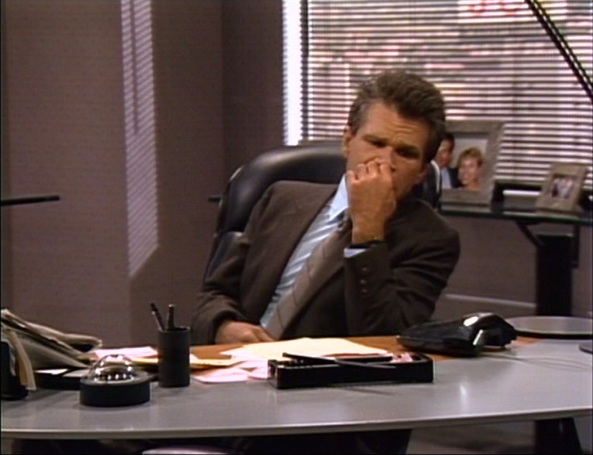
We then re-join David Leisure, already in progress.
He’s apologizing on the phone for turning down Polka Jamboree. This episode is a crock of shit, but I have to admit I’m glad that we’ve got David Leisure to keep us company.
Bill Cosby calls to talk to him, and Leisure compliments him on the great episode last week, in which Theo lost his comb. “I never, ever thought he’d find it,” Leisure says, demonstrating very overtly how much better ALF would be if it were stocked with capable actors. Not great ones…just ones that respect and understand their craft.
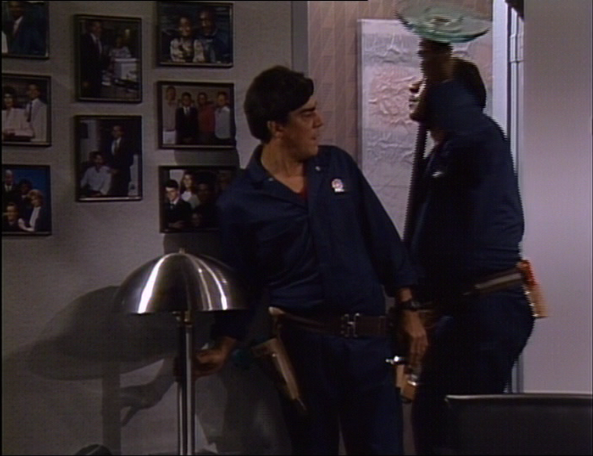
Whoa, two black guys in one episode! This one’s a janitor, showing up to move Tartikoff out of his office for turning down television’s most popular show. Leisure says, “I guess we can’t be number one forever,” and at the time this aired that was probably a pretty good joke.
Tartikoff — the real one — was the man who more or less single-handedly turned NBC into a juggernaut. A seemingly endless series of brilliant acquisitions gave the floundering network not only a sense of identity, but an association with reliable quality. Tartikoff commissioned Hill Street Blues, L.A. Law, Law & Order, Family Ties, The Cosby Show, Cheers, Seinfeld, Miami Vice, The Golden Girls and a mountain of other shows that have either stood the test of time or at least made their mark on the era.
He was a shrewd and impressive man to whom an entire network owed its success. Now, however, NBC’s fortunes are behind it. The few hits (The Office, 30 Rock) it still had are gone, and even the cult favorites (such as Community) are on their way out. Tartikoff gave the network an identity.
When he was gone (he passed away before he even reached 50, but left one hell of a legacy) nobody with vision stepped up to fill the void. “We can’t be number one forever” is more of a depressing reminder of better days than a puckish wink to the audience, and I have to admit it makes me a bit sad.
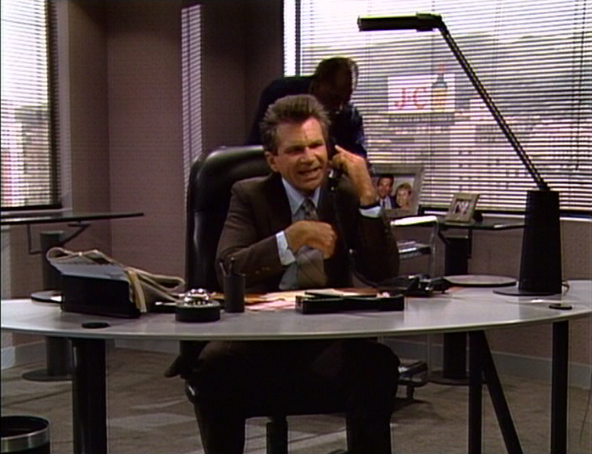
ALF calls the president of NBC, because of course he does, and the show uses this opportunity to remind us that they’re so comfortable with black people that they’ll even stick one in the background and not give him any lines.
David Leisure listens while ALF recaps for him the major plot points of the episode. He admits that he tampered with the ratings, but I guess none of that matters, because Tartikoff is still moved out of his office, in favor of Michele Brustin, who plays herself. What, you don’t recognize Michele Brustin? She was the brains behind Knight Rider 2000 and literally nothing good. This episode is framing her as a kind of rival to Tartikoff’s throne. Now there’s a joke that didn’t age well.
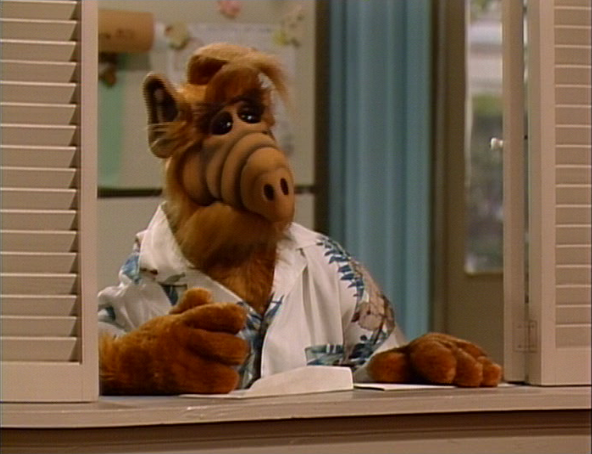
The original black man comes and takes back the Tanners’ Thompson box, and when he leaves ALF pops up through the plot window.
But…man. This puppet looks different. The hair looks wrong, the fur looks too thick, and it seems to be a more vibrant shade of orange than usual. Also, he’s wearing a Hawaiian shirt for literally no reason, and his face looks like it’s been wedged under boxes in a storage locker for the summer.
What’s more, the puppetry in this scene is really bad. I couldn’t even concentrate on what he was saying. You’ve heard me praise Fusco’s puppetry before, but here it’s not expressive at all. Instead of “acting” like ALF, somebody’s just dropping and raising the puppet’s jaw in concert with the words. It’s really, really strange.
Why is the puppetry so bad? Was Fusco ill or something, and an intern had to do it? And why the rattier puppet? Did Fusco not trust a subordinate with ALF Prime?
Whatever. ALF tells Willie to pick him up a million stamps and the episode is over.
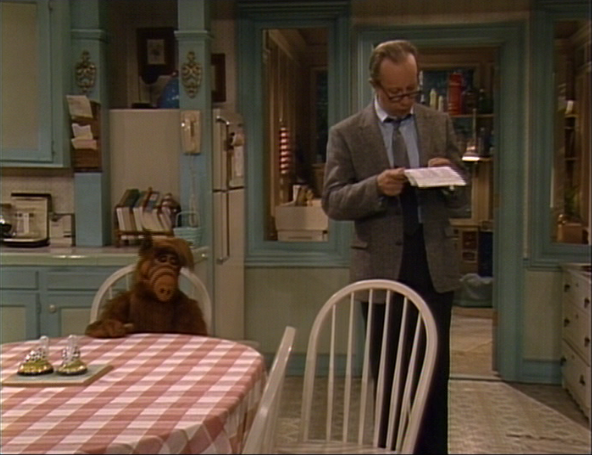
In the short pre-credits scene, we see ALF. The real ALF. See how much different this looks from that soulless imposter a moment ago?
Willie reads the phone bill and ALF plays the accordion, which I like to interpret as a punch in both nuts for anyone who actually sat through this entire thing.
What the fuck was the point of any of this? ALF makes a show we’ve never heard of number one, which results in a character we’ve never seen before losing his job. That’s “Strangers in the Night” level pointlessness right there.
If season two really does turn out to be better than season one, it sure is taking its time getting there.
—–
* Somebody please appreciate my wordplay.
** The credits reveal that this is Tom Patchett, one of the other “brains” behind ALF. The more you know.
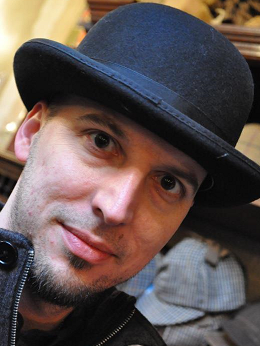 Hi readers! I hope you’re as eager to read Monster Party as I was to write it.
Hi readers! I hope you’re as eager to read Monster Party as I was to write it.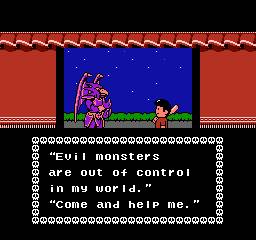 In sixth grade we had a writing assignment to create a story starring ourselves and a friend. Most of the kids chose another classmate to fill in the “friend” role. A few of the girls chose older male movie stars they had crushes on. I chose Luigi, and we traveled to Dinosaur Island.
In sixth grade we had a writing assignment to create a story starring ourselves and a friend. Most of the kids chose another classmate to fill in the “friend” role. A few of the girls chose older male movie stars they had crushes on. I chose Luigi, and we traveled to Dinosaur Island. 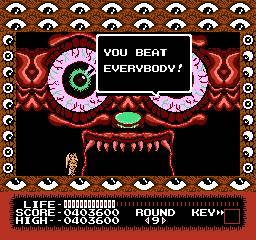 “This story is based on Final Fantasy III, all characters copyright Squaresoft.” (Or something similar.)
“This story is based on Final Fantasy III, all characters copyright Squaresoft.” (Or something similar.)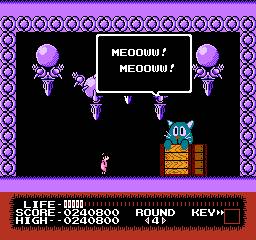 Which brings me up to today; as a Director at WayForward I generally design and write all the games I work on. (In fact, I finished up a game script immediately before writing “Monster Party,” and kicked off another one immediately after.)
Which brings me up to today; as a Director at WayForward I generally design and write all the games I work on. (In fact, I finished up a game script immediately before writing “Monster Party,” and kicked off another one immediately after.) 